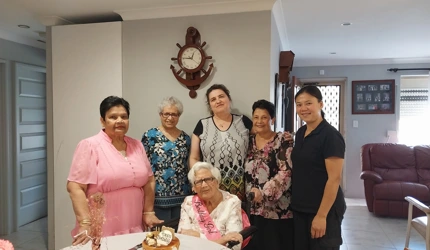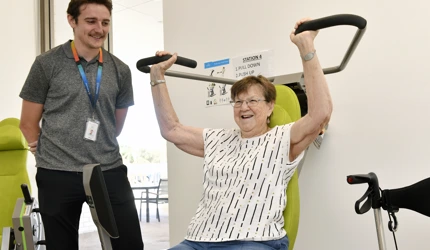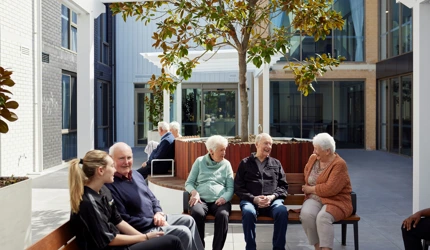
One of life’s biggest fears is losing control of your ability to make decisions. As we age, that fear can increase as we begin to experience a decline in health or mental acuity. Developing an Advance Care Plan is a great way to ensure you remain in control of your life, even after you can no longer communicate your wishes.
Brightwater Research Centre Clinical Trial Coordinator Rebecca Walton has been working with the University of New South Wales and Neuroscience Research Australia on a study called EARLI, the Enhanced Advance care planning and life Review Longitudinal Intervention Project. This project is funded by the National Health and Medical Research Council. One of the project’s goals is to help Australians aged 65 or over get a head start on advance care planning. Rebecca says an Advance Care Plan can reduce stress and anxiety in the later stages of life. It also gives healthcare providers and loved ones peace of mind about the decisions they’re making on your behalf.
“We quite often see people coming to advance care planning when there’s a crisis point,” Rebecca said.
“It’s so much better for everyone if we can plan before there’s a really emotional, stressful event happening.”
What is an Advance Care Plan?
An Advance Care Plan is a guide for your aged care residence, carers, loved ones and medical team to make decisions about your care when you can no longer participate. Your plan should consider your values, beliefs, and preferences so everyone knows what you want as you approach the end of your life.
Your plan doesn’t have to be complicated, but you should be explicit about what you want. It’s important to have conversations with your loved ones so they know, in advance, what you expect.
Who should have an advance care plan?
Everyone should consider advance care planning, regardless of their age or health. It can be particularly important for people who are ill, are aged 75 years or older, or have been diagnosed with dementia or Alzheimer’s disease.
If you’re living in residential aged care and you don’t have an advance care plan, it’s time to get started. The Department of Health recommends a four-step process for your advance care planning:
- Think about what’s important to you.
- Talk to your loved ones and healthcare professionals.
- Write down important details about what you want before and after you die. Include information about your will and legally binding documents about your finances, guardianship, and advance health directives.
- Share your plan so everyone knows what you expect.

Using your life story for end of life planning
An Advance Care Plan is a voluntary process of planning for future health and personal care. It gives you a chance to decide what matters most to you now, and what will matter to you if your health declines.
The Conversation Project, an initiative of the Institute for Healthcare Improvement, published a free resource called Your Conversation Starter Guide: How to talk about what matters to you and have a say in your health care. It provides excellent prompts to help you collect your thoughts and focus your thinking.
Rebecca’s work with EARLI is focused on helping people reflect on what’s important to them and what’s driven their decision-making throughout their life.
“Using the life story is an affirming process and important for them going forward in their care,” Rebecca said.
“People are saying it’s been quite a cathartic experience for them.”
Involving family in advance care planning is a way to address stressful decisions about life and death. It can break down barriers where people may have been reluctant to confront the inevitable.
“Once their wishes are written down, it is one less thing to worry about,” Rebecca said.
“The decision-making process can be incredibly stressful at the time of a crisis, so trying to alleviate that by planning ahead makes life easier for everyone.
“Then you can focus on spending time with loved ones as you want, instead of answering doctors’ questions or trying to make big decisions.”
When your Advance Care Plan is completed, you can add it to My Heath Record so it’s available to your treating doctors if it’s ever needed.
How advance care planning helps at end of life
Brightwater End of Life Coordinator Ed Gaudoin works to ensure respect and dignity are part of the dying process for every resident at Brightwater. An Advance Care Plan is an essential tool to making that happen. He believes the sooner the planning begins, the better.
“We want to know what makes you feel safe and what’s important to you,” Ed said.
He looks at every Advance Care Plan with one question in mind, “What do I need to know about you to give you the best care?”
According to Ed, palliative care encompasses more than treating physical symptoms. The whole person is cared for including spiritual, social, family, and emotional needs.
Advance care planning allows others to understand your wishes if you are no longer able to tell them what is important to you. It’s easier on your loved ones and those caring for you when they’re confident about what you want.
“It can make an extremely difficult time a little bit easier to navigate,” Rebecca said.



